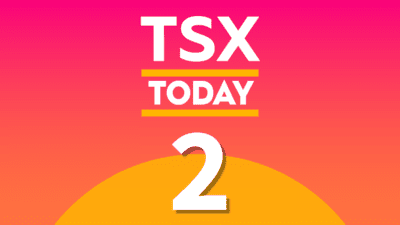While other Canadian banks have looked south of the border or overseas to find new customers, CIBC (TSX:CM)(NYSE:CM) has employed a different approach: corporate partnerships. By joining forces with retailers, CIBC has been able to have its name and logo front and center for people who would normally not walk past its branches.
Tim Hortons
CIBC recently announced its newest partnership with Tim Hortons (TSX:THI)(NYSE:THI) to launch a new CIBC Visa credit card combined with Tim Cash. For every purchase made on the card, 1% would be earned in Tim Cash, which can then be redeemed using the same card. CIBC benefits by collecting the interest off of the balances.
Tim Hortons was a late adopter of debit terminals and the use of credit cards in stores seemed far off. In many cases, this limited the purchases customers could make as more and more made the switch from paper to plastic. Now having access to a credit card with points attached should make it psychologically easier to spend a little more at Tim Hortons every morning.
Mobile payments
Another type of partnership CIBC has delved into is a mobile payment app. What started as a way to check balances and pay bills has evolved into a way to pay for purchases on the fly. Partnerships such as Rogers Communications’ (TSX:RCI.B)(NYSE:RCI) Suretap payment system and a new agreement with Telus (TSX:T)(NYSE:TU) has given CIBC greater access to potential customers and created a new source of fees to be collected from each transaction. While the maximum purchase is currently capped at $50, there is talk now to raise it to $100 as retailers become more comfortable with the technology.
Presidents Choice
Perhaps CIBC’s most lucrative and least known partnership is Presidents Choice Financial, which it formed in 1996 with Loblaw (TSX:L). CIBC provides the infrastructure for chequing and savings accounts along with loans and mortgages at PC Financial. Again, the inclusion of PC Points into the credit card greatly influences the buying habits of consumers. Also the employees of Loblaw are encouraged to use its PC Financial services, giving CIBC access to more business.
Foolish bottom line
This is only the beginning of CIBC’s strategy to trade credit cards for points. There’s also a Petro-Points MasterCard and flight rewards programs such as Aeroplan and Aventura, just to name a few. These tactics provide cheap marketing and consumer interaction, allowing retailers to advertise CIBC’s point programs and allowing consumers to rack up a balance for points.
Partnerships such as these have helped the company rebuild over the past few years and have added to its recent performance. For Q1 2014, net income was $1.17 billion — up almost 50% from last year. This is partly attributed to the sale of half of its Aeroplan portfolio. Adjusted to exclude this sale, Q1 net income was $951 million or $2.31 per share up from $882 million or $2.12 last year.
CIBC has taken great strides to undo the damage it has suffered over the past 10 years and concepts such as these partnerships have proven to be cost-effective opportunities to re-engage the public in its brand.







